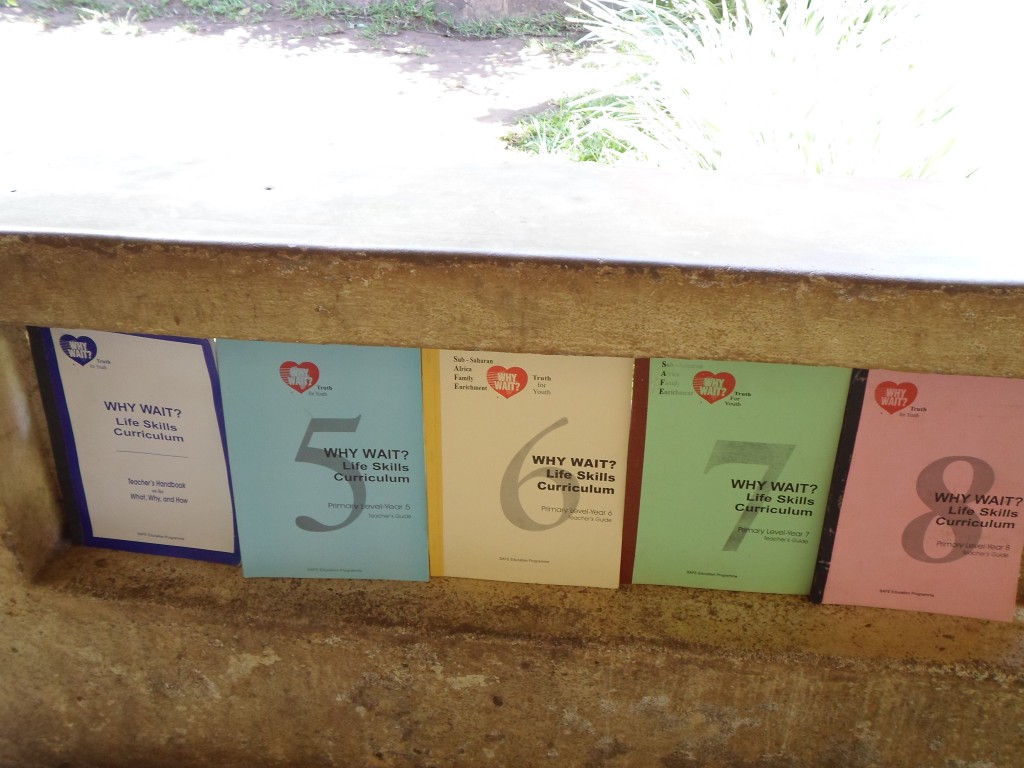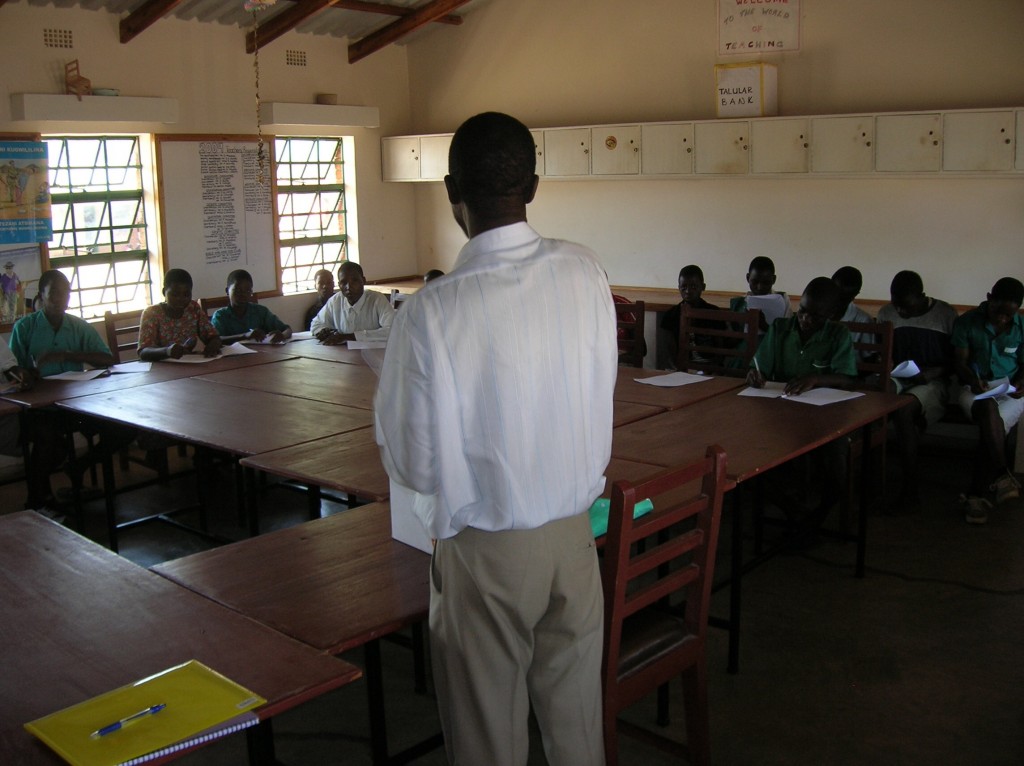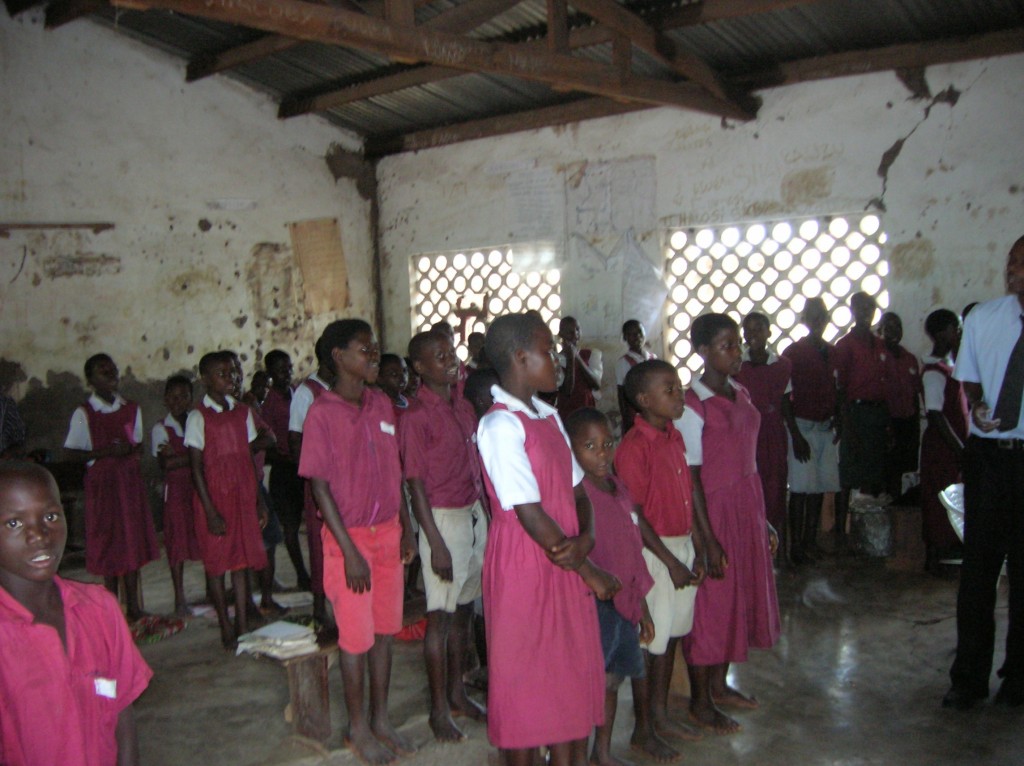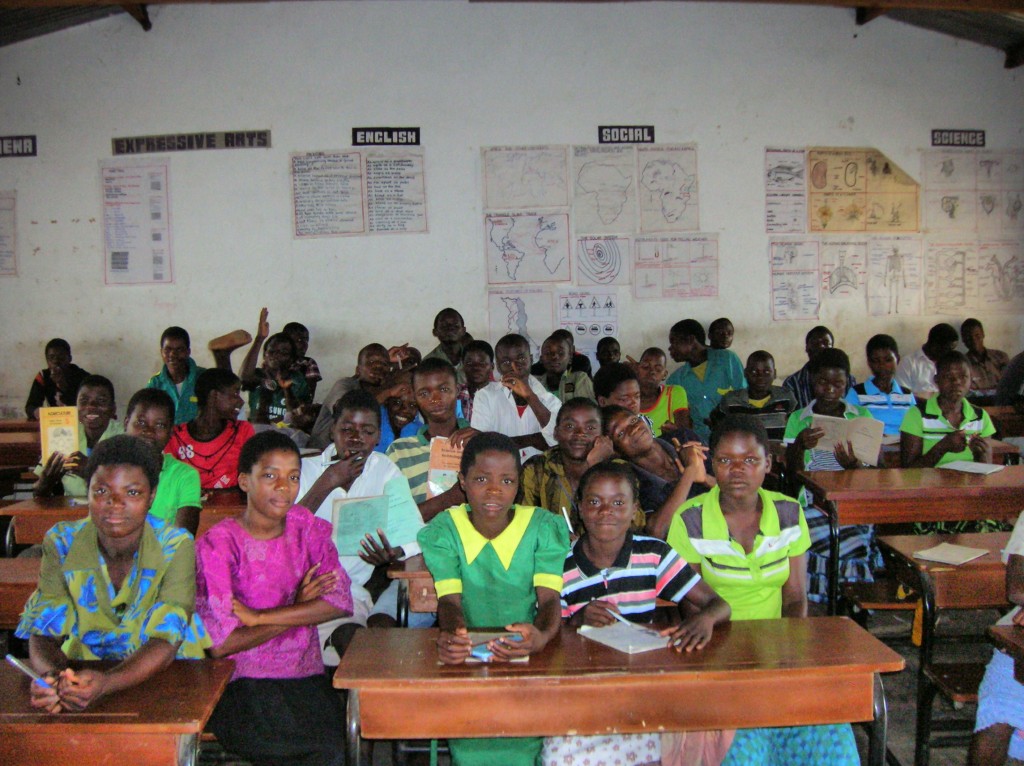Adopt a school for €600 (US$650) per year! Click here for more information.
A well designed Life Skills programme
 “Why Wait” is a well designed and developed Life Skills programme. Each primary school class 5 to 8 has its own curriculum. Teachers too have a Handbook on What to teach, Why teach that, and How to teach. This ensures that all the participating schools go through the same material in the same way. Our plans are to start quiz competitions for the participating schools. This will motivate both the teachers and learners to take the programme seriously.
“Why Wait” is a well designed and developed Life Skills programme. Each primary school class 5 to 8 has its own curriculum. Teachers too have a Handbook on What to teach, Why teach that, and How to teach. This ensures that all the participating schools go through the same material in the same way. Our plans are to start quiz competitions for the participating schools. This will motivate both the teachers and learners to take the programme seriously.
Getting feedback
 FLAEM believes in getting feedback from different stakeholders including the learners. Here, a group of selected learners take part in an evaluation exercise. It is from such feedbacks that we are convinced that “Why Wait” is addressing the needs of the learners.
FLAEM believes in getting feedback from different stakeholders including the learners. Here, a group of selected learners take part in an evaluation exercise. It is from such feedbacks that we are convinced that “Why Wait” is addressing the needs of the learners.
Nobody is a nobody
 Pupils singing one of the most loved songs in Why Wait “Nobody is a nobody”. The song has made a huge impact among the learners. It has taught them to treat each other as images of God. Those who are less privileged because of poverty, disabilities etc are assured that they are not a nobody. Some of the words of the song go:
Pupils singing one of the most loved songs in Why Wait “Nobody is a nobody”. The song has made a huge impact among the learners. It has taught them to treat each other as images of God. Those who are less privileged because of poverty, disabilities etc are assured that they are not a nobody. Some of the words of the song go:
“Nobody is a nobody believe me coz its true, Nobody is a nobody especially not me—–“.
Successful start of school term for Why Wait
The new school term which started on 6th January 2014, has already registered a number of successes regarding Why Wait.
 A number of schools organised football matches between the learners and members of the community. The idea is to foster a good relationship between the schools and the community. With this good relationship, it is easy for both teachers and members of the community to work together in shaping the behaviour of the learners.
A number of schools organised football matches between the learners and members of the community. The idea is to foster a good relationship between the schools and the community. With this good relationship, it is easy for both teachers and members of the community to work together in shaping the behaviour of the learners.
One of the schools went to clean a clinic (mopping, slashing and washing walls). They did this as a way of putting into practice one of the things they learnt in a Why Wait – being good citizens.
All schools have action plans on what they intend to do as a way of putting into practice what they learn. The plans include doing charity work for the needy and vulnerable in their communities, organising open days where members of the community will be invited to watch different performances aimed at pointing out some cultural practices that are harmful especially in the context of HIV and AIDS and exchange visits among many other things.
We are convinced that empowering our teachers will make them produce wonders with the pupils they teach.
- 1
- …
- 4
- 5
- 6
- Next Page »